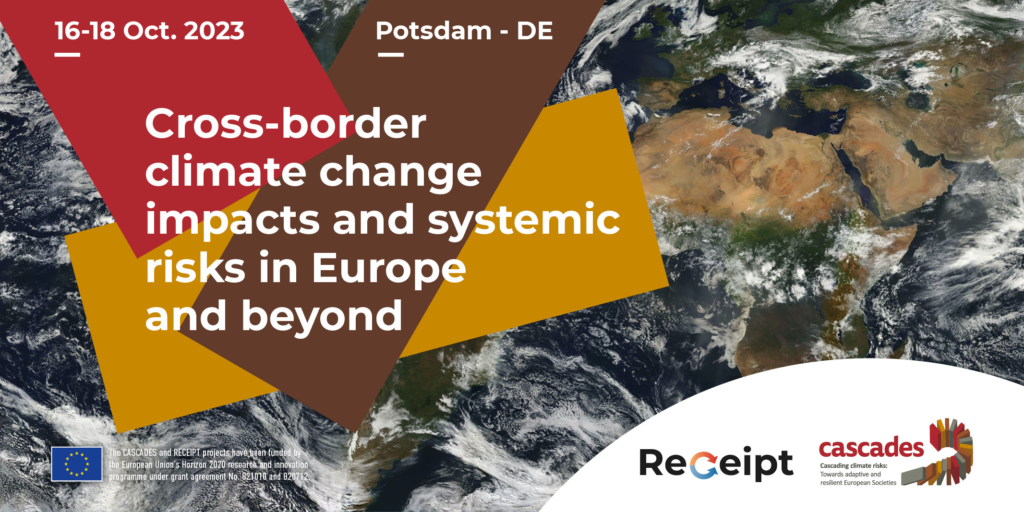
Climate impacts in one location that propagate to other locations through trade and value chains, development and security policies, and financial systems, may have disrupting effects similar to the COVID-19 pandemic and the war on Ukraine. These effects are not easily represented in traditional analysis frameworks and need to be embedded in the wider context of social vulnerability and climate change. The conference aims to bring together scientists across disciplines that work on approaches to better understand and respond/adapt to cross-border climate impacts and risks. The conference also seeks to identify knowledge gaps and directions for future research. Research presented in the conference will highlight what needs arise from a consideration of cross-border climate impacts, how to design research that is actionable for decision-making or how to improve the monitoring of risks.
SYRR researchers Stefan Hochrainer-Stigler, Qinhan Zhu, Mario Salgado‐Gálvez and Reinhard Mechler are presenting their latest research outcomes on indirect and systemic risks of climate change at the conference hosted at the Potsdam Institute for Climate Impact Research (PIK). Jointly organized by the consortium of two sister EU-Horizon projects, RECEIPT and CASCADES, the conference is to create and share better understanding and responding to cross-border climate impacts and risks.
Several presentations will be delivered by SYRR. Stefan Hochrainer-Stigler will share his research on "A Framework for Multi- and Systemic-Risk Analysis: Focusing on Indirect Risks Based on Dependencies". This paper presents a six-step framework developed as part of the MYRIAD-EU project, with the framework flexible enough to cover single, multi- and systemic risk analysis, including measurement, modelling and management dimensions.
Additionally, Stefan Hochrainer-Stigler will present the results of the RECEIPT project with the talk on "Differential Fiscal Performances of Plausible Disaster Events: A storyline approach for the Central American and Caribbean Governments under CCRIF". This study deploys the Storyline Approach to investigate the effectiveness of sovereign insurance CCRIF in reducing fiscal volatility when facing the high-impact storms under different climate and socio-economic conditions.
Another presentation given by Qinhan Zhu studies the fiscal risks induced by climate hazards in countries of Global South. Together with SYRR colleagues, he further developed the CatSim model to simulate the national economic growth and fiscal performances after being hit by a series of stochastic climate hazards. His research aims to Smart-Support developing countries to make climate resilience policies integrating risk reduction and risk finance.
Mario Salgado‐Gálvez and Reinhard Mechler will showcase their research on climate-induced displacement in vulnerable countries, which has focused on increases in cyclone risk in Mozambique and implications for development and well-being in the region.



